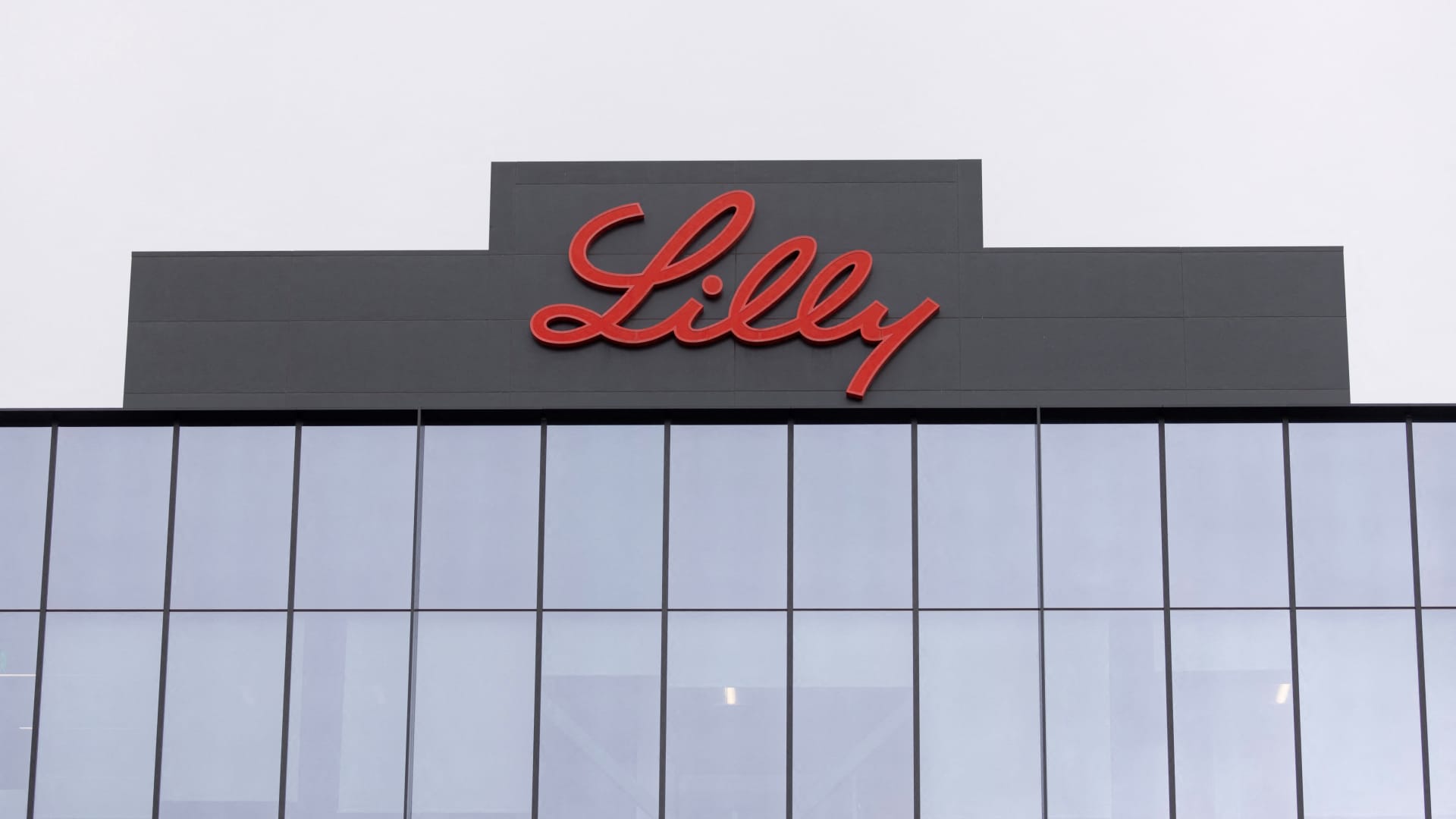Eli Lilly on Wednesday fell short of profit and revenue expectations for the third quarter, weighed down by disappointing sales of its blockbuster weight loss drug Zepbound and diabetes treatment Mounjaro, and slashed its full-year adjusted profit guidance.
The company’s stock tumbled 10% in premarket trading. Shares of its main rival, Novo Nordisk, fell roughly 3%.
Eli Lilly now expects full-year adjusted earnings of between $13.02 and $13.52 per share, down from previous guidance of $16.10 to $16.60 per share. The drugmaker cited a $2.8 billion charge recorded during the third quarter and related to its acquisition of bowel disease drugmaker Morphic Holding as denting its results.
Eli Lilly also lowered the high-end of its revenue outlook for the year and now expects sales of between $45.4 billion and $46 billion. The company’s previous guidance called for revenue of as much as $46.6 billion.
Here’s what Eli Lilly reported for the period ended September 30 compared with what Wall Street was expecting, based on a survey of analysts by LSEG:
- Earnings per share: $1.18 adjusted vs. $1.47 expected
- Revenue: $11.44 billion vs. $12.11 billion expected
The September period was Zepbound’s third full quarter on the U.S. market after winning approval from regulators nearly a year ago. The weekly injection raked in $1.26 billion in sales for the period, below the $1.76 billion that analysts expected, according to StreetAccount.
Meanwhile, Mounjaro posted $3.11 billion in revenue for the third quarter, more than double what it booked in the same period a year ago. But analysts expected $3.77 billion in sales for the diabetes treatment, according to StreetAccount.
Demand in the U.S. has far outpaced supply for Lilly’s incretin drugs, such as Zepbound and Mounjaro, over the last year. Both treatments mimic certain gut hormones to tamp down a person’s appetite and regulate their blood sugar.
The popularity of those injectable drugs has forced both Eli Lilly and Novo Nordisk to invest billions to increase manufacturing capacity for the treatments.
Eli Lilly’s supply woes began to ease earlier this year. As of Wednesday, the Food and Drug Administration’s drug database said all doses of Zepbound and Mounjaro are available in the U.S. after extended shortages. Still, the agency warns that patients may not always be able to immediately fill their prescription for those drugs at a particular pharmacy.
In an interview with CNBC, Eli Lilly CEO David Ricks said the third-quarter performance of Zepbound and Mounjaro “is not a function of supply.” The company said third-quarter sales of the drugs were negatively impacted by inventory decreases among wholesalers.
Ricks also said the company pushed back plans to advertise and promote Zepbound due to customer service levels. The drugmaker will begin those efforts in November, he said.
“When people go and they can’t get their medicine, they’re very frustrated. They tell us that. So we didn’t want to send more people to do that necessarily,” Ricks said.
Eli Lilly has said it expects incretin drug production in the second half of 2024 to be 50% higher than it was during the same period last year. And Ricks said Wednesday the company expects “even greater” expansions in manufacturing capacity at the end of the year and 2025.
For the third quarter, Ely Lilly recorded net income of $970.3 million, or $1.07 per share, compared with a net loss of $57.4 million, or 6 cents per share, during the third quarter of 2023.
Excluding one-time items associated with the value of intangible assets and other adjustments, Eli Lilly posted earnings of $1.18 per share for the most recent quarter.
Revenue was up 20% year over year to $11.44 billion.
The FDA’s decision to remove tirzepatide, the active ingredient in Zepbound and Mounjaro, from its shortage list has drawn fierce opposition from compounding pharmacies that make customized and sometimes cheaper alternatives to Eli Lilly’s branded drugs. Compounding pharmacies are calling for the FDA to reconsider its decision, as both Eli Lilly and Novo Nordisk attempt to crack down on unapproved versions of their top-selling drugs.
Ricks told CNBC the company agrees with the FDA that Zepbound and Mounjaro are no longer in shortage, adding, “We have stock.” He added that compounded versions of Eli Lilly’s branded drugs are not regulated by the FDA, raising questions about their safety and efficacy.
This story is developing. Please check back for updates.
